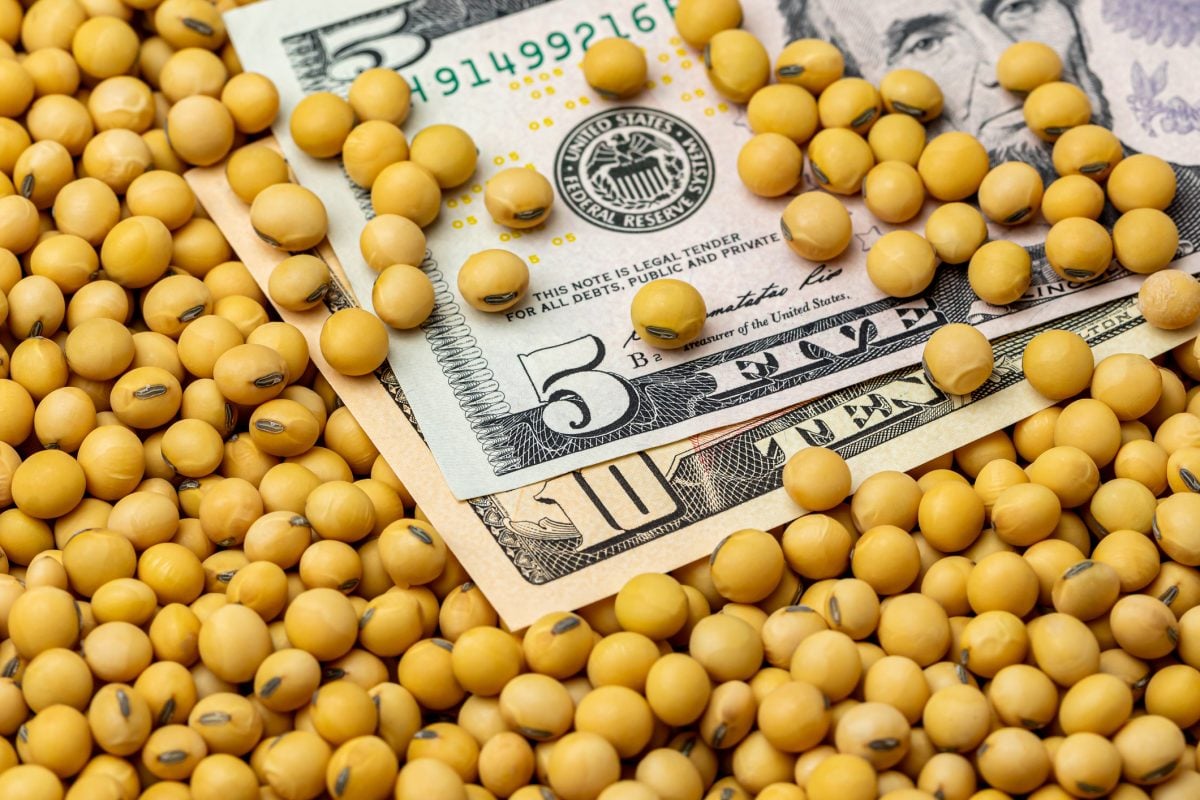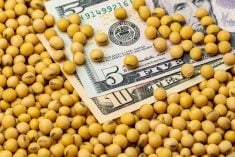Chicago | Reuters –– U.S. corn, soybean and wheat futures firmed on Monday on a round of technical buying and short-covering after prices weakened late last week, traders said.
But huge supplies and spotty demand for U.S. supplies on the global market continued to hang over the market, limiting the gains.
“It may be a little bit more technical than anything else,” said Mark Schultz, chief analyst with Northstar Commodity Investment Co.
The gains were kept in check by an announcement that Argentina’s new president, Mauricio Macri, would cut export taxes on all three commodities, underlining the prospect of growing supplies from South America and further reducing demand for U.S. supplies.
Read Also

U.S. grains: Soybeans set 15-month high on U.S.-China trade deal hopes
Chicago soybean futures reached their highest in 15 months on Tuesday, briefly topping $11 a bushel on optimism that the U.S. could reach a trade deal with China as leaders from both countries are expected to meet in South Korea on Thursday.
Price movements were limited as investors looked ahead to this week’s Federal Reserve meeting, which could bring the first U.S. interest rate rise in nearly a decade.
Chicago Board of Trade wheat futures for March delivery settled up three cents at $4.93-1/2 a bushel. Technical buyers pushed prices higher after the contract neared the low it hit on Friday.
CBOT March corn gained 3-3/4 cents to close at $3.79 a bushel. The market found support after the March contract fell to its 30-day moving average.
“Charts are trying to look a little more positive, but fundamentals supporting a rally are lacking,” Bryce Knorr, senior editor at Farm Futures, said in a note.
CBOT January soybeans ended up 3-1/2 cents at $8.74-1/4 a bushel.
Argentina’s Macri said he would sign a decree before the end of the day cutting the export tax on soybeans from 35 to 30 per cent and eliminating export taxes on wheat and corn, in line with his election promises.
Investors are also waiting to see if Macri eases currency controls that could weaken the Argentine peso and potentially give a further spur to exports from the South American country.
Argentina and neighbouring Brazil are both expected to harvest big soybean crops that will contribute to ample global supplies and vie with U.S. supplies for export sales.
— Mark Weinraub is a Reuters correspondent covering grain markets from Chicago. Additional reporting for Reuters by Gus Trompiz in Paris and Naveen Thukral in Singapore.












